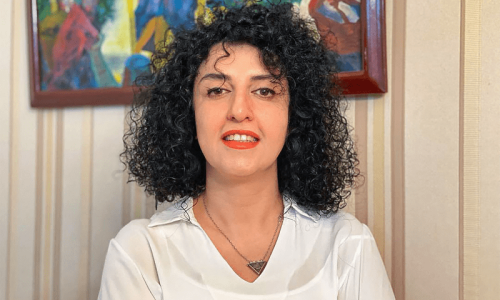UNITED NATIONS: Pakistan played a key role, both in and out of the United Nations, in the adoption of March 15 as the International Day to Combat Islamophobia.
On Tuesday, Pakistan presented a resolution in the UN General Assembly that called for designating a special day for this purpose. It was adopted by consensus by the 193-member world body. Fifty-five, mainly Muslim countries, co-sponsored the resolution that emphasises the right to freedom of religion and belief and recalls a 1981 resolution calling for the elimination of all forms of intolerance and of discrimination based on religion or belief.
March 15 was chosen as the anti-Islamophobia Day because it was on this day in 2019 that a right-wing extremist murdered over 50 Muslims in a terror attack on two mosques in New Zealand.
“From start to finish,” said Pakistan’s UN Ambassador Munir Akram when asked if Pakistan played a key role in getting the resolution adopted.
After the adoption, India and France expressed reservations, arguing that the resolution should have covered all religions, instead of naming Islam. The Indian representative complained that the resolution did not cover anti-Hindu phobia prevalent in some parts of the world. Ambassador Akram said the Indian reaction was “entirely expected, as it puts them on the defensive”.
The phenomenon of Islamophobia, he said, was “so visible in India today” that the move irked them and they “tried to scuttle our resolution at every stage”.
Pakistan launched its efforts in 2019, when Prime Minister Imran Khan visited the United Nations and raised the issue in his UNGA address.
Also read: 'To combat Islamophobia, Imran Khan bridges East and West'
Pakistan again raised the issue in a conference of the Organisation of Islamic Cooperation (OIC) in 2020 and the prime minister wrote to all Muslim rulers, emphasising the need to move a resolution on Islamophobia in the UN.
As Pakistan took the matter to the UN, India put up resistance while another country brought a resolution to block it. Some others were reluctant too, arguing that they wanted a consensus, not a vote.
Some OIC members pointed out that their UN ambassadors did not have the mandate to raise this issue. The matter was discussed at the OIC conference in Niger in November 2020 and a core group was formed, which included Egypt, Iran, Indonesia, Jordan, Pakistan, Saudi Arabia and Turkey.
The group presented a draft resolution in the OIC meeting, got it approved and started negotiations with others. China and Russia were the first to support the move.
The group then approached the US and European nations and dealt with their reservations. India and the European Union were the biggest obstacles.
“They suggested not to make it Islam-specific. We argued that today’s problem is Islamophobia. We are willing to deal with other issues as well, but let’s focus on this first,” Ambassador Akram said.
In final negotiations, the core group succeeded in persuading the EU not to call for a vote. But France, which has its own problems with Muslims, continued to call for a general resolution, without mentioning Islam.
Later, France also agreed not to call for a vote as they did not want to be seen as the only nation opposing it.
To win over the EU, the core group omitted some more specific references from the resolution. China and Russia announced the authorship of the resolution, so the vote was not called, and the resolution was adopted by consensus.
“Islamophobia is a reality. Its manifestations — hate speech, discrimination, and violence against Muslims — are proliferating in several parts of the world,” said Ambassador Akram while explaining why Pakistan pushed so hard for the resolution.
The purpose behind this move was to “promote tolerance, peaceful co-existence and interfaith and cultural harmony”, he said. “The objective of observing this Day is uniting faiths, not dividing them.”
Published in Dawn, March 17th, 2022














































